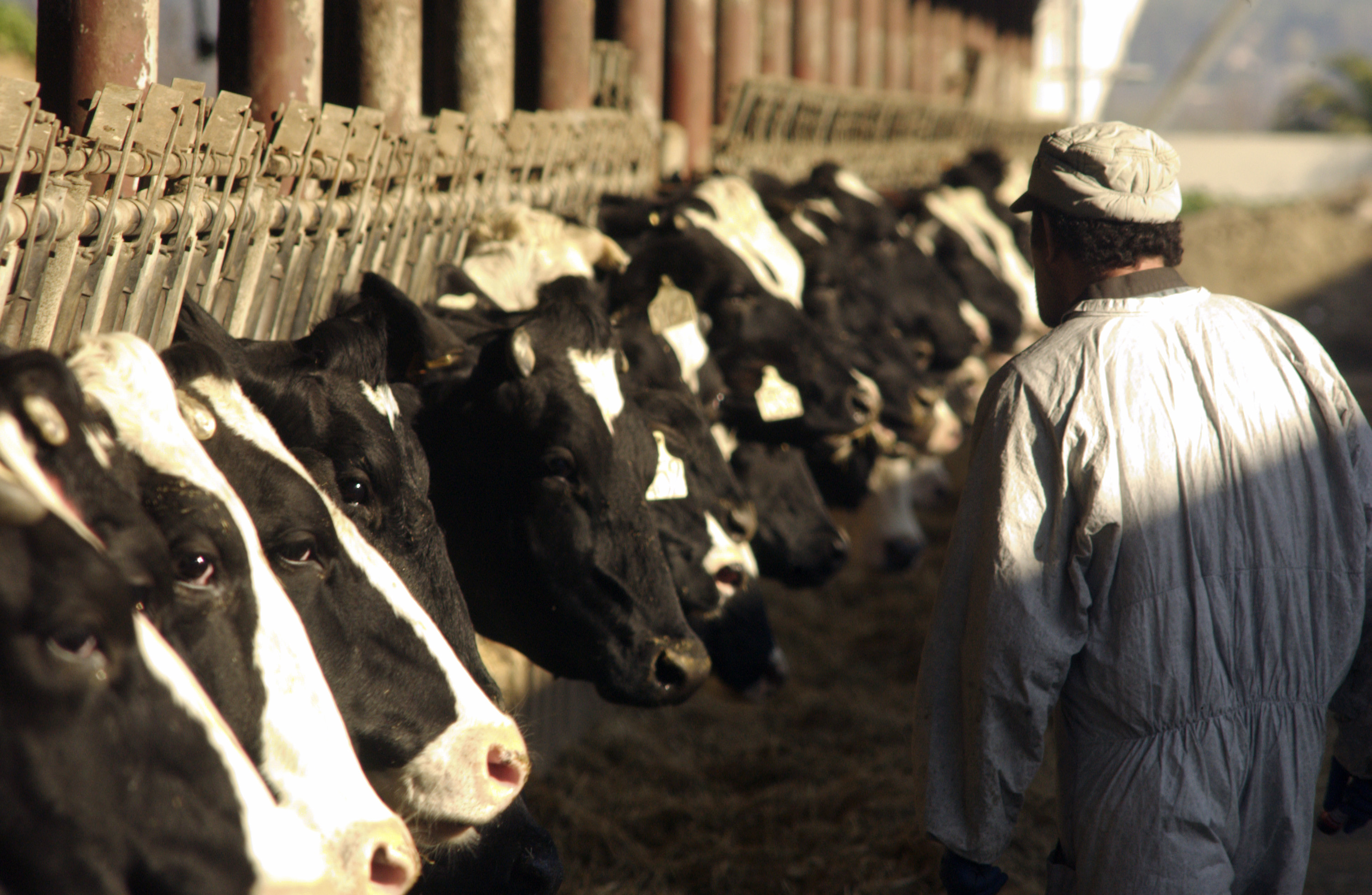Following the milky way

Ukrainian dairy industry looks ahead
On 20 January 2016, Ukrainian policy-makers met with representatives of the dairy industry to review the progress made on the sector’s competitiveness and export diversification over the previous year. Meeting participants were the members of the standing Ukrainian Dairy Working Group (WG), created three years ago by the Food and Agriculture Organization of the United Nations (FAO)’s Investment Centre, the European Bank for Reconstruction and Development (EBRD) and the Ministry of Agrarian Policy and Food. The WG was conceived to bring public and private sector voices to the table and facilitate more transparent policy-making in the dairy sector.
This initially modest initiative has grown since 2013 and the WG is now a recognized platform with a demonstrated capacity to influence concrete policy and regulatory improvements for the good of Ukraine’s dairy sector. The January meeting, organized in Kiev, featured more than 40 participants – including milk producers, dairy processors, government representatives, industry associations and independent analysts. High interest has turned the WG meetings into regular dairy fora where dairy professionals – beyond core WG members – can learn about market and legislative updates and exchange ideas with their peers.
The meeting focused on the progress and results of 2015, which were testament to the positive synergies created by the WG. Notable achievements included getting access to the EU and Chinese markets for a number of Ukrainian dairy companies; opening up Kazakhstan’s market; maintaining free trade arrangements with Belarus; improving the transparency of the dairy market through the development of publicly available supply and demand balances; and the resolution of long-standing issues related to water use and manure utilization through legislative changes. By streamlining production processes and strengthening its trade ties, Ukraine is quickly developing its reputation as a high-quality and reliable dairy supplier.
“Back in 2013, dairy farmers were struggling with lack of dialogue with the government and unclear market potential for high quality milk,” explained Andriy Yarmak, Economist at FAO, “Now, with a platform for private-public dialogue, commercial farms have increased productivity by 18.3 percent while improving efficiency and sustainability and more than tripled their production of high quality milk, which helped diversify their exports to more than 100 countries. In the meantime, they have also strengthened industry associations for the overall benefit of the sector. The Working Group has achieved remarkable success for such a short existence.”
The WG has made decisive efforts to grow its knowledge base and improve its operations. With FAO and EBRD support, the group helped organize a study tour for selected milk producers and processors to the United States to learn about the latest technologies and how producers’ cooperatives function. New ideas stimulated by such exchanges have made it possible for the Ukrainian dairy industry to turn toward completely new markets. At the January meeting, the FAO/EBRD team presented a market study highlighting opportunities for Ukrainian dairy products in sub-Saharan Africa. A trade mission will shortly scope out these interesting prospects.
“The EBRD sees its broad and extensive engagement for and funding for agribusiness from small-scale farmers to larger companies as an important way to support the overall Ukrainian economy,” said Sevki Acuner, EBRD Director for Ukraine. “We have been working closely with the Ministry of Agriculture and the Ukrainian government on reforms that enable investment in the sector while simultaneously helping producers to reach new markets. Together, these efforts have been showing positive results in the country and in the dairy sector, in particular.”
After taking stock of the past year, the group also looked to the future and, like 2015, 2016 is full of opportunities. Negotiations are underway with European and Chinese trade partners to further increase export markets. A new Dairy Business Strategy is being developed for the country to consolidate its standards and improve market access. Finally, the Eastern European Dairy Congress – to be held from 2 to 4 March in Kiev with the support of FAO, the EBRD, and the Ministry of Agriculture – will be an occasion to share technological and market knowledge with other countries of the region. The Congress is expected to bring together more than 2,000 international participants and break ground in terms of regional dairy integration.
